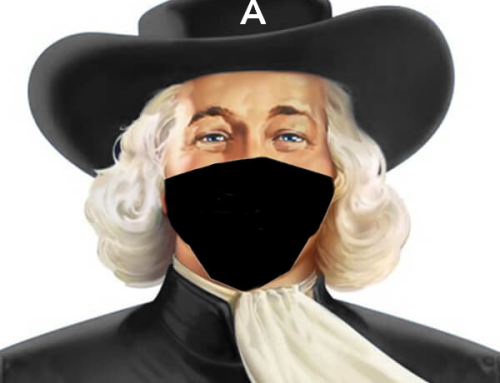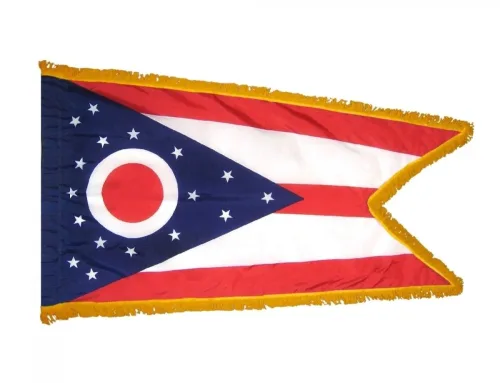By Jessica Salfia
In 1990 I was nine years old, and my mom, a single parent, was a day-to-day substitute teacher in Barbour County, West Virginia. We lived in a trailer that was already well past its prime — a tin box that was hot in the summer and cold in the winter, but also where some of the happiest memories of my life take place. However, this time also was one of my mom’s hardest. She struggled to feed us and provide for us alone, and she made sure that while she was working day to day to get us from paycheck to paycheck, we thrived. I don’t ever remember wanting anything really. She always made it work.
Then, West Virginia teachers went on strike.
Now my mother not only had no health insurance, but no income. I’m not going to lie, we struggled. But it’s not the struggle or the contention I remember with crystal clarity — it’s the intense pride I remember seeing on my mom’s face when we’d drive past the picketing teachers outside Philip Barbour High and she’d blast her horn in solidarity. I remember the sign my papaw hung on his rusted out, wooden flatbed farm use truck that said “retired teacher vehicle” that he would drive back and forth in front of the picket lines. It is the pride in every teacher’s face who said of those days in 1990, “We held out until they gave us what we deserved” (which turned out to be a significant pay raise — West Virginia teacher pay went from 49th in the nation to 31st — faculty senates, and training and services needed to do the important work).
West Virginia teachers have consistently not been given enough, and have been told to make it work. We buy supplies with our own money. We spend our Saturdays organizing fundraisers. We take second jobs at Walmart, selling Mary Kay, and waiting tables to ensure we can continue making miracles happen.
Nearly three decades later, I’m a proud West Virginia teacher myself, and the improved working conditions hard won in 1990 have eroded. Teacher pay is once again well below the national average, and changes made to the Public Employee Insurance Agency (without the approval of the teachers union) portend skyrocketing premiums and deductibles for our health insurance, which will exacerbate what’s already an economic burden for me and my fellow educators. That’s why, for the last eight school days, nearly 20,000 of us West Virginia teachers have been on strike, asking for a 5% pay raise and the restoration of proper health benefits.
On Saturday, the West Virginia Senate offered a 4% raise, to which our union leaders declared, just like those proud teachers did in 1990, “We will hold out until we get what we deserve.”
For many folks the difference between 4% and 5% may seem minimal — it may not seem worth keeping our schools closed. But for West Virginia teachers this 1% difference is about so much more. Because this 1% is just one more example of teachers being asked to “make it enough.” Oh, you have 35 kids in class, but only 28 desks? Figure it out. I know we only have 20 books but you have 27 students. You’ll come up with something. I’m sorry there’s no field trip money to take your students on that learning experience, but I’m sure you’ll make it work.
West Virginia teachers have consistently not been given enough, and have been told to make it work. And despite never having enough, we have delivered miracles. We buy supplies with our own money. We spend our Saturdays organizing fundraisers to support our students learning experiences. We take second jobs at Walmart, selling Mary Kay, and waiting tables to ensure we can continue making miracles happen.
Resources aside, everyday in my classroom I have to be the best version of myself. My students and their parents expect me to be engaging, prepared, rested, excited, happy, and an expert in my field. Think about the most important presentation you have ever given — the presentation that your job depended on. I do that six times a day, five days a week.
My administrators expect instruction to occur bell to bell. Our school and my performance is evaluated by my students’ performance on a test I don’t get to see. I have to prepare students for college, for jobs, for scholarships. I teach them to write literary analysis and résumés. To be empathetic, critical, smart, fair, and professional.
My principals and my community expect me to guide my students to success. And now, in this day and age, some say I must prepare my students for the threat of an active shooter. Some say I am expected to take a bullet for the children in my classroom while I’m preparing them to be the future leaders of West Virginia.
And I have diligently worked to exceed these expectations.
In 2015 I received an Arch Coal Teacher Achievement Award, in 2016 I was named Berkeley County Teacher of the Year, and now in 2018, I am nominated for a Stephen L. Fisher teaching award. I teach Advanced Placement classes, advise the Spring Mills High Diversity Club, coordinate our homecoming parade, and serve on our school’s Curriculum and Instruction Team, the Berkeley County Diversity Council, and the Berkeley County Schools Teacher Advisory Committee. It is safe to say I have devoted my life to service and to public education in West Virginia.
I would be lying if the temptation of higher pay in Maryland or Virginia hadn’t given me pause once or twice. But I haven’t left because I still believe in West Virginia.
I am also a wife and a mother of three, but I have treated the hundreds of kids who have passed through my classroom like they were my own. I have fed and clothed my students. I have sat at my kitchen table with my checkbook trying to decide which bills to pay so I can still afford supplies for my classroom. I have spent my Saturdays chaperoning trips to college fairs and organizing fundraisers to support my students’ projects and learning opportunities. I have written hundreds of letters of recommendation for scholarships, colleges, and jobs. I have attended their weddings and baby showers. I have spoken at some of their funerals. I have wiped their tears, held their hands, and shared their joy.
And I do this not because it’s expected, but because it’s what my students deserve, what West Virginia deserves. I believe in what I do as an educator, and I believe that the most valuable resource we have in this state is our young people.
But we are tired. And even before the walkout on February 22, some of my colleagues were readying their résumés for neighboring Maryland and Virginia, where West Virginia teachers can add $20,000 to $30,000 to their annual salaries. The status quo has already taken its toll: West Virginia schools have more than 700 full-time vacancies, and 38% of the state’s math classrooms have an uncertified teacher.
I would be lying if the temptation of higher pay so close hadn’t given me pause once or twice. But I haven’t left because I still believe in West Virginia, because I still believe that West Virginia’s children deserve public educators who are smart and qualified and good at what they do. I believe our students need teachers like me and all the other incredible teachers across this state who don’t just go to work — but who go to their schools to change the lives of our young people because we believe in them. Because like my mom, my papaw, and all those other educators in 1990 who held out for what they deserve, I’m a proud West Virginia teacher.
Banner photo by Eric Bourgeois







As a recently retire teacher, I find this both moving and tragic. After years of saying I was a public school teacher, my educated friends were amazed at the hours and hours I devoted to the profession. Indeed it is a labor of love and, every dedicated teacher knows it is much more than a profession. It is a calling. The tragedy? The profound indifference to the needs of children. Both students and teachers should not be condemned being political pawns.
What a terrific letter. I’m so grateful to Jessica Salfia for holding the line, and to Belt for spreading the word.